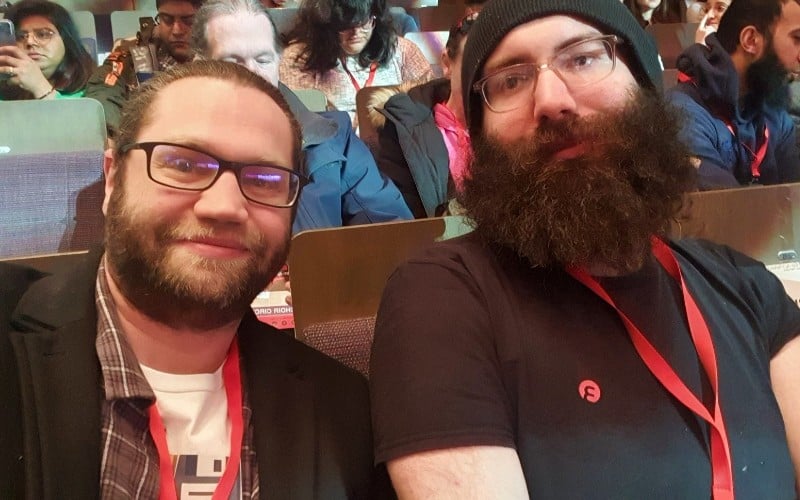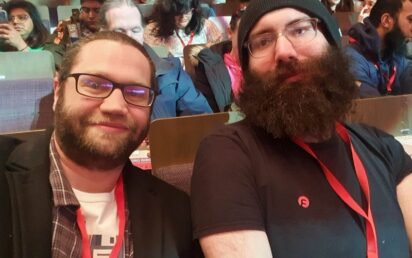Many a startup has a founding duo of someone technical – often the CTO – and someone focused on the business operations.
But are the techies the real rock stars? And should they be celebrated more in the public eye?
“I would like it if there was more of a platform given to the people building tech. We need to celebrate those stories,” Ben Grubert, CEO of artificial intelligence consultancy INEVITABLE, tells TechBlast.
“On a national level, we want to incentivise people getting into technology, and we want to make sure that we’re upskilling people; but at the moment, the platform that we’re giving is to the entrepreneurs. It is valid to recognise those people – but there’s always been a platform for them.
“We don’t have a huge number of examples of technically qualified people [in the public eye]. We don’t have tech rock stars to look up to.”
Speaking to me in Manchester’s Bonded Warehouse workspace, Grubert reels off the pure techies who transitioned to entrepreneurship. It’s a small list. “James Dyson was an engineer… then, on a global scale, you have [Microsoft’s] Bill Gates, Elon Musk [formerly of PayPal, now CEO at Tesla and SpaceX]…
“[Apple founder] Steve Jobs wasn’t technical.”
By contrast, Grubert (pictured main image, left) and his co-founder Sean O’Mahoney (right) are both technical founders – “I came from a heavy maths background, while Sean had a computer science background” – and the result is that they are not constantly distracted by the bottom line.
He jokes: “If we had a non-technical founder who was the salesman, we wouldn’t be specialists. We’d be in a cupboard somewhere!”
INEVITABLE aims to make innovative technologies such as machine learning accessible to all, working with startups and larger enterprises to develop bleeding-edge ethical AI.
“There’s a trend: put a bunch of really smart people in a room, give them as much space, runway and time as possible, make sure that those people are driven and receptive – and they will create tech which is scalable, but flexible,” explains Grubert.
“It’s the flexible part that people miss. They want to build a rocket that just goes up, but the reality is that the biggest businesses have pivoted: PayPal, for example; YouTube started out as a dating platform!
“The way we teach people is to show these examples of entrepreneurship, as if one day they had an idea – and then they just did nothing but plug away and work on that idea. Sheer willpower and a dogmatic mindset – they just drove, drove, drove.
“It sounds good in a narrative, but that’s not how they got there. You need confidence in your skillset as an entrepreneur to listen and respond to the market, not to go ‘I was right all along’ – that’s just luck. You don’t educate the market – the reverse is true!”
INEVITABLE’s services include development, CTO-as-a-service and technical due diligence for investors, with a core expertise in providing strategic guidance and technical solutions to help startups, SMEs and CICs to scale.
“The world has pivoted into AI in a big way. The nerdy kids are now the cool kids… the rock stars. I want to see that gap start to close,” says Grubert.
“We don’t really teach entrepreneurs how to create businesses in the future – and we really need to. The business landscape in the future is not going to look the same as it is now.
“Tomorrow’s business is today’s tech – and the day after’s business is today’s deep tech. So where does one end and the other one begin? There should be a soft transition between them.
“But without those rock stars to drive the narrative – joining the national conversation about policies and legislation, what we should be incentivising, how we should be building and stimulating the companies of the future – [we will struggle] to ensure that the tech that is built is responsible and scalable and ethical… and that AI is done properly.”

